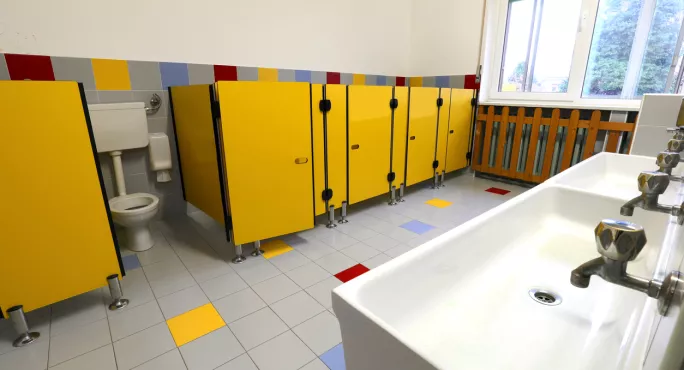- Home
- Can sewage show us if pupils are Covid super spreaders?
Can sewage show us if pupils are Covid super spreaders?

The role of children in the transmission of Covid-19 (SARS-CoV2) has been debated; however, a recent study confirms that children of all ages can be infected and transmit the virus, too.
With the increased likelihood of children developing mild Covid-19 symptoms, being asymptomatic or alternatively presenting with gastrointestinal symptoms instead of typical adult symptoms, could schools be silent players in coronavirus transmission?
It is now becoming apparent that transmission of the virus through communities is far from symmetrical. Studies have revealed that clusters of super-spreading events are the driving force behind the pandemic and that the majority of infected people contribute minimally.
So a mass testing strategy for schools offers a three-fold benefit:
1. It keeps “healthy” students and teachers in school rather than in isolation, which helps to keep schools open.
2. It serves as an indicator for community transmission.
3. It controls transmission of the virus in the community.
Coronavirus testing in schools
Current testing strategies come with the caveat that they are time-consuming and expensive. They offer a temporary solution, but testing at the individual level as a strategy for mass surveillance is unlikely to be effective, especially when scaled up and implemented over a prolonged period.
Is there a solution?
As I have written previously, routine pooled PCR/antigen testing offers a strategy by which all school bubbles could be regularly screened.
However, in the absence of a working saliva-based protocol, parental consent could be a barrier.
Italy is currently trialling a non-invasive rapid test that requires children to simply chew on a swab for a saliva sample - that may make routine pooled PCR tests more palatable to parents.
There is an alternative mass-testing approach currently being tested in the UK though: wastewater/sewage sampling.
Sewage testing for Covid-19
Like pooled testing, this method ensures that the number of tests being used is dramatically minimised, yet identification of positive cases is maintained.
Testing wastewater from schools has many benefits, such as increasing testing capacity, cost-effectiveness, inspiring parent confidence in schools and regulating transmission in the local community.
How does wastewater testing work?
Wastewater testing began as a means to eradicate poliovirus in the 1990s.
Early on during the pandemic, scientists realised that due to SARS-CoV2 being able to infect cells in the small intestine, genetic material from the virus could be detected in faeces by traditional PCR testing.
It is considered that the harsh gastrointestinal environment renders the virus inactive and, therefore, this genetic material is non-infectious, although further studies may be required to confirm this.
What are the advantages and limitations of wastewater testing?
The key advantage is time. Importantly, medical tests currently used require the infected person to display symptoms prior to being tested. Once tested, the sample processing time must also be accounted for. During this time the individual could unknowingly spread the virus.
Studies have shown that viral “shedding” (release of virus particles from an infected person into their environment) can occur approximately five to six days prior to the development of symptoms.
Wastewater testing may interrupt transmission in schools and the community by detecting infections up to a week earlier.
Limitations to wastewater testing pertain to the quality of the sample, which could be vastly variable between sites and impact on the accuracy and comparability of results.
However, significant research is currently being directed towards the tweaking of these tests with a view to introducing them as a national surveillance strategy.
What could this mean for schools?
Schools and local communities could really benefit from this system. Regularly testing wastewater from schools would allow the monitoring of trends in the community.
In the event of a wastewater spike, traditional forms of testing, tracing and isolation could be directed earlier to prevent potential super-spreading events in schools and local populations.
Additionally, schools could escape being adversely affected by peak cold and flu season over winter or practise further caution in the instance of an upward trend based on frequent wastewater testing.
Wastewater/sewage testing offers a real solution to the existing testing crisis. In conjunction with the targeted use of diagnostic tests, such as PCR and antigen tests, this approach provides a rapid, inexpensive means for the continual surveillance of entire schools and their local communities.
Shetal Arjan-odedra is a former virologist and now trainee teacher
Keep reading for just £1 per month
You've reached your limit of free articles this month. Subscribe for £1 per month for three months and get:
- Unlimited access to all Tes magazine content
- Exclusive subscriber-only stories
- Award-winning email newsletters


